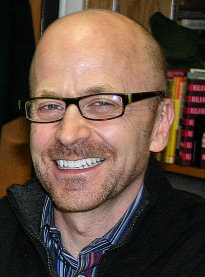Visiting law professor discusses relationship between rainforest, its people
February 20, 2008
As swaths of the Amazon rainforest continue to be leveled, environmentalists there are trying to figure out how to protect what is perhaps the world's most important ecological treasure.
Add to the equation the needs of the people indigenous to the forest areas, and the situation becomes increasingly complicated, says Solange Teles, a law professor visiting Georgia State University from the State University of the Amazon in Manaus, Brazil.
“Deforestation follows the price of commodities,” Teles said during a recent faculty lecture at the Georgia State's College of Law, where she is teaching for two weeks.
Teles' visit is part of a spring class organized by the College of Law's Center for the Comparative Study of Metropolitan Growth. Associate professor of law Colin Crawford, the center's co-director, says bringing in scholars from abroad to lecture about their local environmental laws gives students an opportunity to learn first-hand about legal systems throughout the world, and how their environmental policies are constructed. 
Complicated local and federal protections in place in the Amazon region, for example, often aren't enforced, according to Teles, due to logistical challenges and corruption among local tribal leaders and government officials. And commodities, like soy and beef cattle, are profitable for Brazilian land owners who clear forests for planting.
Teles, who also teaches at the Catholic University of Santos in Sao Paulo, is concerned that the United States' increasing attention to alternative fuels, like bio-diesel, could increase the disastrous impact on the Amazon. Demand for the crops used to produce the fuel would increase prices, further encouraging destruction of the forest.
“We have to be careful about bio-fuels produced by soya and the possibility we have for deforestation,” she said.
Laws have been on the books in the region since the 1960s to protect certain types of forest lands, but Teles says those laws have been loosened in recent years to permit development in some instances on land once set aside for permanent protection.
While much of Brazil is in the heart of the Amazon, “we don't think of the Amazon region as like the heart of Brazil,” she said.
The first professor to visit the class this semester was Daniel Bonilla, of the University of the Andes in Bogota, Colombia. An expert on that country's constitution, Bonilla taught here for two weeks in January.
Following Teles' visit, Ellen Basse of the University of Aarhaus in Denmark will serve as the final visiting professor of the semester. Basse is highly regarded for her work in drafting European Union laws that harmonize member nations' environmental policies.